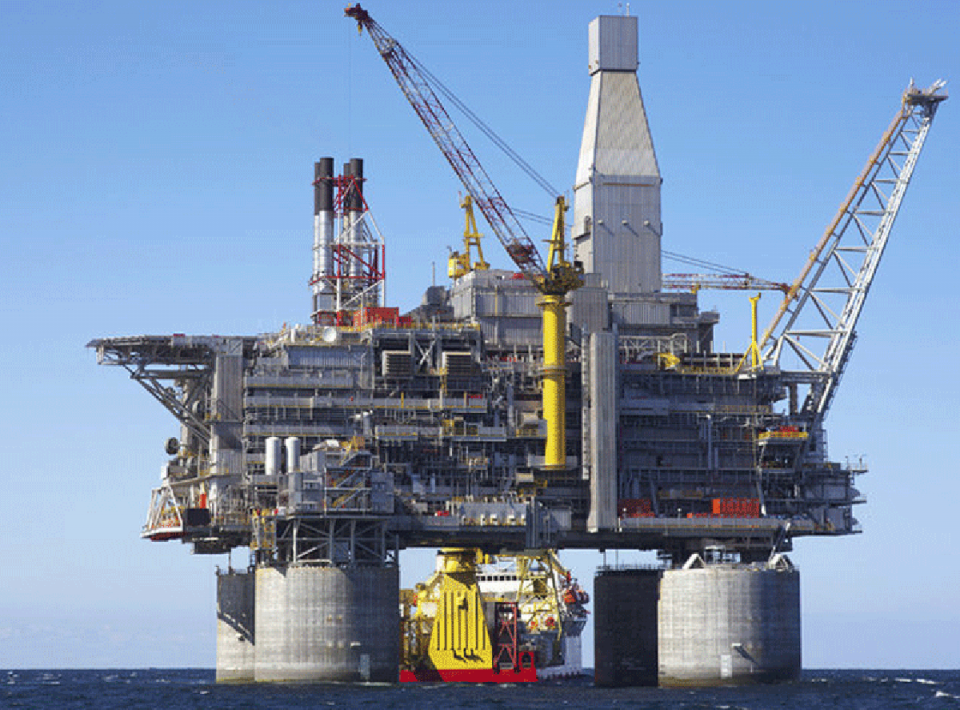Photo caption: Oil platform
Nigeria, Ivory Coast, and Mozambique are on course to commence at least 10 new offshore drilling projects between 2026 and 2027, marking a major push in Africa’s deep-water oil and gas development.
This development was revealed in a report by Upstream Online, an international energy industry website quoting two global offshore drilling giants, Transocean and Valaris, on Monday.
Transocean and Valaris are both prominent global offshore drilling contractors. They compete for contracts to provide drilling services for oil and gas exploration and production.
According to the companies, the trio of African nations is emerging as a strategic hotspot for future “floater” opportunities, driven by growing interest from international oil companies in long-term deepwater operations spanning West, South, and East Africa.
The report read, “Africa is at last starting to generate the opportunity set that the global deepwater drilling contractors have been waiting for.
“In their latest earnings calls, both companies said that expectations are high for drillship and semi-submersible requirements in West, South, and East Africa.
“Offshore Africa remains the most active area for future floater opportunities.
We are currently tracking approximately 10 long-term programs with expected start dates in 2026 or 2027, including projects offshore Nigeria, Ivory Coast, and Mozambique,” Valaris’ Senior Chief Commercial Officer, Matt Lyne, said.
The push, analysts say, underscores renewed global confidence in Africa’s offshore basins, despite long-standing challenges such as high capital costs and complex engineering requirements associated with deepwater exploration.
With global energy demand on the rise and improved economics for offshore projects, stakeholders are increasingly channelling investments into the continent’s underexplored but resource-rich waters.
Nigeria, Africa’s largest oil producer, is seeing a revival of offshore interest. Ivory Coast is emerging as a promising player following recent discoveries, while Mozambique continues to attract attention with its substantial offshore gas reserves.
The expected ramp-up in drilling could create major economic ripple effects from foreign direct investment to job creation and local capacity building.
As the industry shifts its gaze toward deeper waters, Africa, led by Nigeria, Ivory Coast, and Mozambique, is positioning itself as a central hub in the next chapter of global offshore energy development.
Recently, Shell Nigeria Exploration and Production Company Ltd. expressed its confidence in Nigeria’s ability to meet its production target of over 2.4 million barrels per day, with deepwater drilling playing a key role.
Ronald Adams, Managing Director of SNEPCo, noted that Nigeria’s deepwater reserves are among the most promising globally, not just for oil, but also for gas fields that support cleaner energy solutions, power domestic needs, and help reduce global emissions.
With onshore and shallow water production in decline and challenged by pipeline vandalism and crude oil theft, many international oil companies, including Shell, Chevron, and TotalEnergies, are shifting investment offshore, where operations are more secure and scalable.
In 2023, Nigeria’s Bonga field, operated by SNEPCo, reached a historic milestone by exporting one billion barrels of oil.
The success was followed by progress on the $5 billion Bonga North deepwater project, which reached the Final Investment Decision in 2025, further strengthening Nigeria’s offshore energy prospects.
=== PUNCH ===



